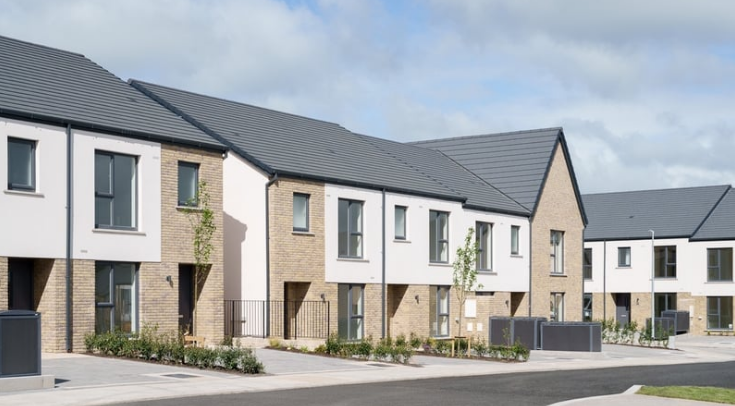Residential property prices rose by 7.5% in the year to March, according to the latest figures from the Central Statistics Office (CSO), reflecting a modest slowdown from the 8% annual increase reported in February.
The median price of a home purchased over the 12-month period stood at €362,500. Dún Laoghaire-Rathdown recorded the highest median price at €665,000, while Leitrim remained the most affordable at €180,000.
Dublin property prices rose by 6% annually, while prices outside the capital climbed by 8.7%. Within Dublin, house prices increased by 5.9% and apartment prices by 6.2%. The strongest growth in the capital was seen in Fingal, where prices surged 7.8%, while South Dublin saw more subdued growth of 4.7%.
Outside Dublin, house prices jumped by 9.1% while apartment prices rose by 4.3%. The Border region, which includes Cavan, Donegal, Leitrim, Monaghan, and Sligo, posted the largest annual increase at 12.8%. In contrast, the Mid-East region—covering Kildare, Louth, Meath, and Wicklow—recorded the smallest rise at 6.7%.
The most expensive Eircode area over the past year was A94 (Blackrock, Dublin), with a median price of €750,000. At the other end of the spectrum, F45 (Castlerea, Roscommon) was the most affordable, with a median price of €150,000.
In March, 3,617 home purchases were filed with Revenue, up 9.1% from 3,314 in March 2024. These transactions amounted to a total value of €1.5 billion, including €1.2 billion for 2,866 existing homes and €360.6 million for 751 new homes.
The national property price index is now 17.3% above the peak recorded during the 2007 housing boom. In Dublin, residential prices are 4% higher than the February 2007 peak, while prices outside the capital are 19.1% higher than their May 2007 peak.
Amid the continued rise in prices, Sinn Féin leader Mary Lou McDonald criticised the Government’s handling of the housing crisis in the Dáil, accusing it of “screwing up” on housing policy. Highlighting rising rents — now averaging €24,000 annually — she questioned if the Government plans to scrap rent pressure zones, warning it would lead to “rip-off” rents.
Taoiseach Micheál Martin acknowledged high rents but defended current policy, arguing the key issue remains supply. He claimed the Opposition lacked credible alternatives and said Sinn Féin’s previous proposals would have “screwed” first-time buyers, while also discouraging investment in the rental market.

















